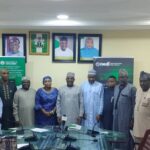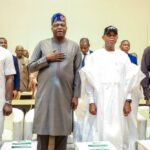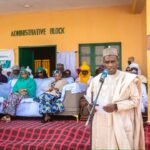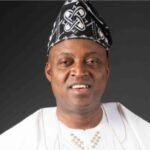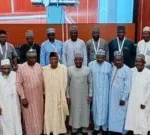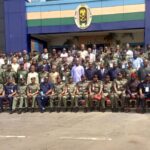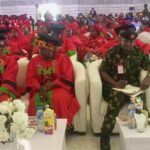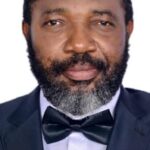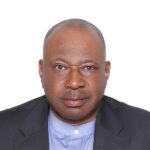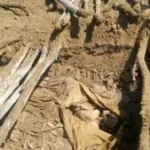Late Ghali Na’Abba: Salute to an Avatar of Democracy
By Ali M. Ali
Ghali Umar Na’Abba was a man with a protean face. Hate him or love him, no one will deny him his progressive credentials.
Any wonder why when he breathed his last on Wednesday in Abuja, the nation’s political capital where he once held court as the lead lawmaker in the Green Chamber of the National Assembly, the panapoly of reactions was as varied as it was profound.
Born into power and affluence on September 27, 1958, Na’Abba was the archetype aristocratic turncoat! Not for him the acquiescence to class conspiracy as early in life, he had demonstrated an aversion for the status quo.
How did this young Turk born into a wealthy mercantile family become an avatar of progressive politics? The answer may well be in his foray into Political Science at the Ahmadu Bello University, Zaria, which was then the hot bed of intellectual radicalism in Northern Nigeria.
It was not surprising that as a student, Na’Abba was elected as an executive committee member of the Ahmadu Bello University chapter of the revolutionary People’s Redemption Party (PRP).
The PRP, established by maverick politician and elder statesman, Aminu Kano, stood out as the lone champion of good governance and transparency in the then murky politics of Nigeria. These virtues certainly resonated well with the upwardly mobile Na’Abba.
Reading well the underpinnings of Nigerian politics and its intriguing contractions, Na’Abba was a formative member of the Peoples Democratic Party at the dawn of democracy in 1998, emerging the party’s candidate in the April 1999 National Assembly election in Kano Municipal Federal Constituency of Kano State.
Buoyed by the tremendous goodwill which his personae attracted and the popularity among his fellow lawmakers, Na’Abba sought the position of Speaker.
But he was to bow to pressure, allowing the youthful Salisu Buhari to emerge as the first Speaker of the Fourth Republic.
Buhari’s tenure was, however, short-lived, as he was consumed by the scandalous certificate forgery saga, opening the door for a triumphant Na’Abba to emerge Speaker.
One defining feature of Na’Abba’s emergence as Speaker was the utmost consensus among his colleagues about the fidelity of his politics and his farsighted vision of a Green Chamber built on the twin pillars of integrity and independence of each arm of government.
These twin virtues were to define his tumultuous relationship with the brusque President Olusegun Obasanjo who spiritedly sought to ride roughshod over the National Assembly.
While the Senate faltered under the onslaught of Obasanjo’s jackboot style of administration, it is to the credit of Na’Abba and his colleagues that the Green Chamber stood up to defend Nigeria’s nascent democracy.
But for Na’Abba and his colleagues, Nigeria’s march to an enduring and sustainable democracy would have been inexorably altered when Obasanjo sought a third term in office through the back door.
Indeed, Na’Abba’s tenure as Speaker was a defining period in Nigeria’s political oddessy as it witnessed vibrant and animated debates, well fashioned bills as well as articulated resolutions and motions.
Most remarkably, that House spoke truth to power as Na’Abba operated from a position of strength, ensconced in the fact that he could mobilise a two-third majority anytime there was a critical matter of state to be deliberated upon.
In those testy years of the Obasanjo presidency, Na’Abba once mobilised more than 300 members out of the 360 in the House of Representatives to overturn the president’s veto on bills such as that of the NDDC among others.
Many would also recall the daring attempt to impeach Obasanjo after the House detailed 32 impeachable offences against him.
A thorn in the flesh of a civilian dictator, it was understandable that ensuring Na’Abba does not win re-election became a presidential project.
In April 2003, Na’Abba sought re-election into the House of Representatives on the platform of his PDP.
After surviving many plots to remove Na’Abba as Speaker, the desperation of the behemoth presidency against his reelection bid was all too brazen.
In the conspiracy to force Na’Abba to lose the election, the PDP also suffered collateral damage with the victory of the All Nigeria People’s Party candidate.
After the 2003 elections, Na’Abba was to return to a life of bemused quietitude on the political sidelines, only regaling the nation once in a while with his seminal interventions
Even in death, Na’Abba remained the spartan image of Nigeria’s political establishment, living his last moments in a rented apartment in Abuja after his house was burnt down in 2011 for supporting then President Good luck Jonathan.
For a man who bestrode the political landscape like a Colossus, it is sardonic irony that members of the nation’s political class are visiting his family home in Kano to pay tributes to his memory.
As we mourn this avatar of pluralist democracy, my thoughts are with his family and all those whose lives he had touched.
May Allah forgive his shortcomings and grant him the highest place in paradise.
Ali is the Managing Director of News Agency of Nigeria.

